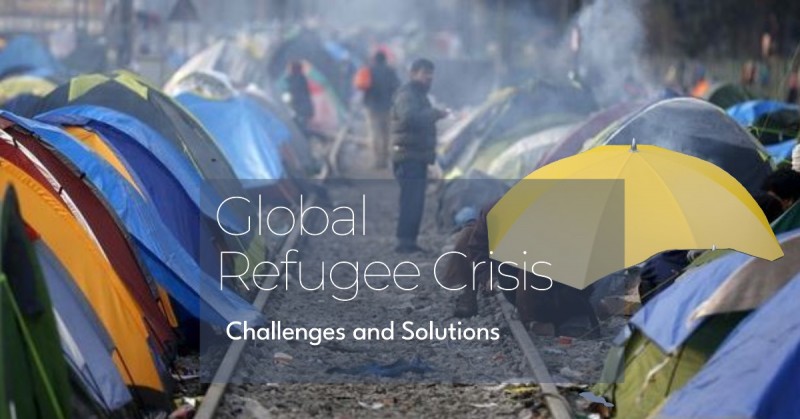
In today's interconnected world, the global refugee crisis has become an increasingly pressing issue. Millions of people worldwide are forcibly displaced from their homes due to conflicts, persecution, and other factors. This article will discuss the challenges faced by refugees, including displacement, human rights issues, resettlement, and the crucial role played by countries and organizations in addressing this crisis.
Understanding Forced Displacement
Forced displacement refers to the involuntary movement of individuals who are forced to leave their homes. This can occur due to various reasons, such as armed conflicts, persecution, human rights abuses, or environmental disasters. Refugees often face immense challenges, including the loss of their homes, separation from their families, and the need to seek safety and protection in unfamiliar territories.
Human Rights Issues and Vulnerabilities
Refugees are particularly vulnerable to human rights abuses and violations. They may experience discrimination, lack of access to basic services, and exploitation. Women, children, and the elderly are especially at risk of facing gender-based violence, human trafficking, and other forms of abuse. Protecting the human rights of refugees is crucial for their well-being and dignity.
Challenges of Resettlement
Resettlement is a complex process that involves providing refugees with a new home and the necessary support to rebuild their lives. However, it comes with its own set of challenges. Language barriers, cultural differences, and the loss of social networks can make it difficult for refugees to integrate into their new communities. Adequate housing, healthcare, education, and employment opportunities are essential for successful resettlement.
The Role of Countries in Addressing the Crisis
Countries play a significant role in addressing the global refugee crisis. They have the responsibility to protect and provide assistance to refugees within their borders. This includes ensuring access to asylum procedures, humane treatment, and the provision of basic needs. Additionally, countries can contribute to the resolution of conflicts, promote peacebuilding efforts, and work towards the eradication of the root causes of displacement.
The Role of Organizations in Providing Support
International organizations, non-governmental organizations (NGOs), and humanitarian agencies also play a crucial role in supporting refugees. These organizations provide essential services such as shelter, food, healthcare, and education. They advocate for the rights of refugees, raise awareness about the crisis, and mobilize resources to address the needs of displaced populations. Collaboration between countries and organizations is vital for effective response and long-term solutions.
Conclusion
The global refugee crisis poses significant challenges that require urgent attention and collective action. Displacement, human rights issues, and resettlement difficulties impact the lives of millions of individuals around the world. It is essential for countries to uphold their responsibilities in protecting and supporting refugees, while organizations continue to provide vital assistance. By working together, we can address the underlying causes of the crisis and ensure a more secure and inclusive future for refugees.
Mythological and Legendary Stories Associated with the Hanging Pillar at Lepakshi
'Want to see India, adore Bollywood films,' says Suga of BTS
Disha Patani Birthday: Celebrating the Life and Success of a Bollywood Star